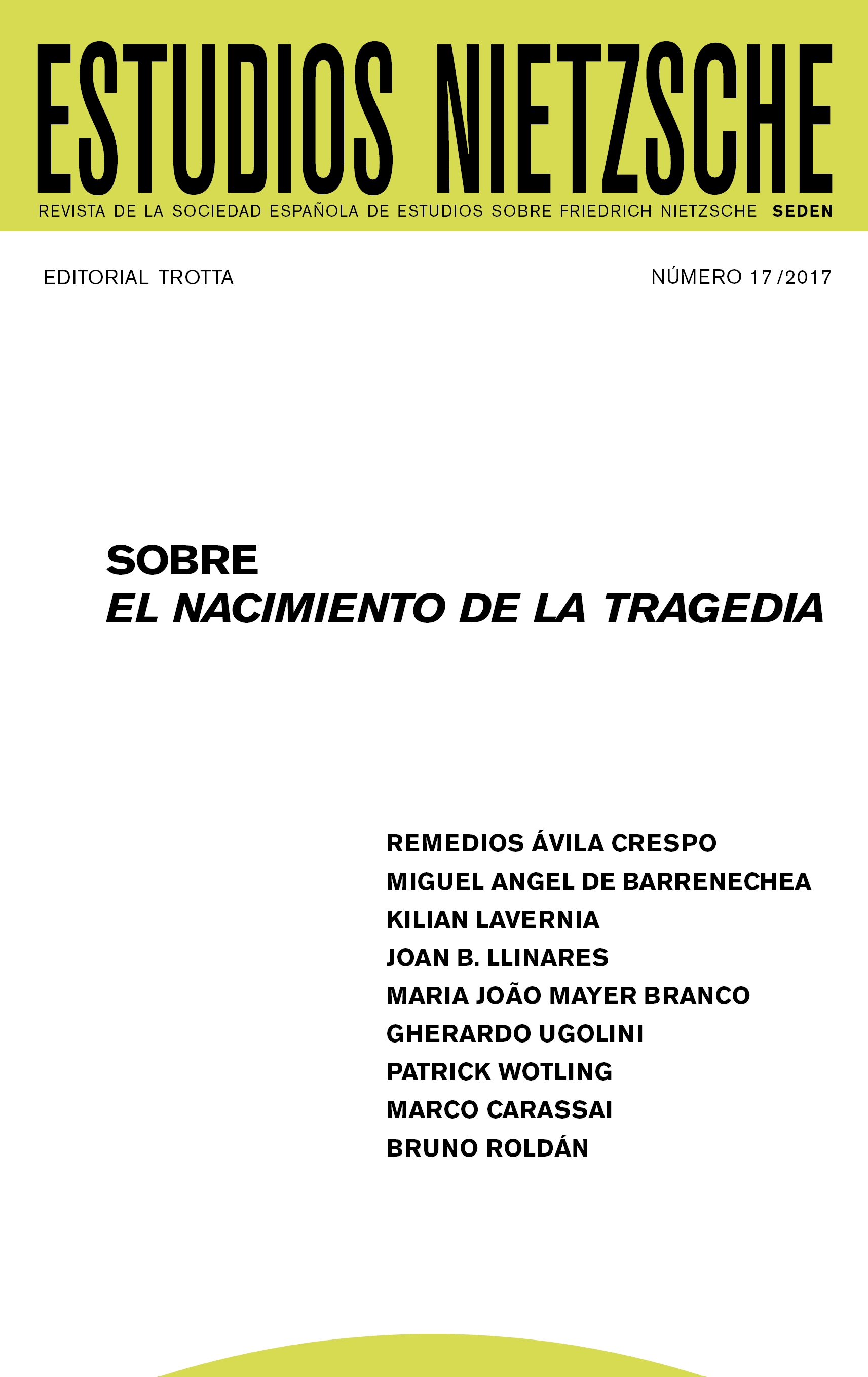The Dream of a Finite World: An Approach to the Problem of the Relationship between Language and World in Nietzsche’s Thought
DOI:
https://doi.org/10.24310/EstudiosNIETen.vi17.10847Keywords:
dream, world, language, eternal return, ascetismAbstract
Nietzsche says several times in his correspondence that Daybreak and The Gay Science were an introduction and a commentary of his Zarathustra, a commentary that he had written before the very text. By interpreting some passages in the chapter «On the three evils», we analyze the possibility of extending this hermeneutical proposal to a reading method that allows us to reveal the internal coherence of the overall project of his philosophy. Developing a conception of the world through language and moral criticism that results from
this task are two aspects closely related in his thinking.
Downloads
Metrics
References
Blanqui, Louis-Auguste La eternidad a través de los astros, México: Siglo XXI, 2000.
Boscovich, R. J., A Theory of Natural Philosophy, Chicago-Londres: Open Court Publishing Company, 1922.
Conill-Sancho, Jesús y Diego Sánchez Meca, Guía Comares de Nietzsche, Granada: Comares, 2014.
Deleuze, Gilles, Conversaciones, Valencia: Pre-Textos, 2014, p. 280.
Emerson, Ralph Waldo, Die Führung des Lebens, Leipzig: Steinacker, 1862.
Gerhardt, Volker, Friedrich Nietzsche. Also sprach Zarathustra, Berlín: Akademie Verlag, 2012.
Janz, C. P., Friedrich Nietzsche 3. Los diez años del filósofo errante, Madrid: Alianza, 1985.
Montinari, Mazzino, Lo que dijo Nietzsche, Barcelona: Salamandra, 2003.
Nietzsche, F., Obras Completas, I-IV (OC ). Director ed. Diego Sánchez Meca. Madrid: Tecnos, 2011-2016
Nietzsche, F., Correspondencia I-VI. (CO). Director ed. Luis E. de Santiago Guervós. Madrid : Trotta, 2005- 2012.
Nietzsche, F., Fragmentos Póstumos I-IV (FP). Director ed. Diego Sánchez Meca. Madrid: Tecnos, 2006-2010.
Schirnhofer, Resa von, «Vom Menschen Nietzsche»: Zeitschrift für philosophische Forschung 22/2 (abr. - jun., 1968).
Vogt, Johanes Gustav, Die Kraft. Eine real-monistische Weltanschauung, Leipzig: Haupt & Tischler, 1878.
Weber, Max, La ética protestante y el espíritu del capitalismo, Madrid: Akal, 1998.
Downloads
Published
How to Cite
Issue
Section
License
As of issue 21 (2021) this journal is published only in open access (diamond route).
From that number 21, like the previous numbers published in NIETZSCHE STUDIES, they are subject to the Creative Commons Acknowledgment-NoComercia-ShareIgual 4.0 license, the full text of which can be consulted at <http://creativecommons.org/licenses/by-nc-sa/4.0 >
It is the responsibility of the authors to obtain the necessary permissions of the images that are subject to copyright.
This work is licensed under a Creative Commons Attribution-NonCommercial-ShareAlike 4.0 International License.
Copyright generates two different rights: moral rights and patrimonial rights that EJFB recognizes and respects. Moral rights are those relating to the recognition of the authorship. They are rights of a personal nature that are perpetual, inalienable, unseizable and imprescriptible as consequence of the indivisible union of the author and his/her work.
Patrimonial rights are those that can be derived from the reproduction, distribution, adaptation or communication of the work, among others.







11.png)
